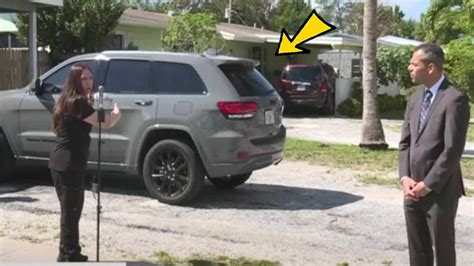
A Holocaust survivor, Clara Rich, who lost her home in the Marshall Fire in Boulder County, Colorado, is urging Americans to remember the lessons of history and reject hate, emphasizing that “hate never wins.” Rich, 98, delivered a powerful message of resilience and hope during a recent interview, reflecting on her experiences during World War II and the parallels she sees with current societal divisions.
Clara Rich, a 98-year-old Holocaust survivor, is sending a stark warning to America after losing her home in the devastating Marshall Fire that swept through Boulder County, Colorado, in December 2021. Reflecting on the destruction and displacement, Rich draws parallels to her experiences fleeing Nazi persecution during World War II, emphasizing that the lessons of history must not be forgotten. “Hate never wins,” she stated emphatically, urging the nation to remember the atrocities of the past and actively combat the forces of division and prejudice that threaten the present.
Rich, who escaped Nazi-occupied Europe as a teenager, sees disturbing echoes of the past in today’s societal polarization and rising antisemitism. The Marshall Fire, which destroyed over 1,000 homes and caused widespread devastation, served as a personal tragedy for Rich, forcing her to confront loss and displacement once again late in life. Despite the hardship, her message remains one of unwavering hope and resilience, rooted in the belief that humanity can overcome even the darkest chapters of its history.
“I feel it’s very important that people remember,” Rich said in an interview. “Because if they forget, it could happen again.” Her plea underscores the critical importance of Holocaust education and remembrance in preventing future atrocities. She emphasizes that complacency and indifference are dangerous and that active engagement in promoting tolerance and understanding is essential.
Rich’s story is a testament to the strength of the human spirit and a call to action for individuals to stand up against hate and injustice wherever it manifests. Her experiences offer a unique perspective on the fragility of peace and the enduring relevance of historical lessons in navigating contemporary challenges. The loss of her home, while devastating, has only strengthened her resolve to share her message and ensure that future generations learn from the mistakes of the past.
The Marshall Fire, which tore through Louisville and Superior, Colorado, on December 30, 2021, was one of the most destructive wildfires in the state’s history. Fueled by high winds and dry conditions, the fire spread rapidly, leaving thousands homeless and causing billions of dollars in damage. For Clara Rich, the fire not only resulted in the loss of her physical home but also triggered painful memories of her past, underscoring the importance of confronting hate and prejudice in all its forms.
Rich’s journey began in Europe during the rise of Nazi Germany. As a young girl, she witnessed the escalating persecution of Jews and the growing threat of war. Her family eventually made the difficult decision to flee their home, seeking refuge in a safer country. This experience shaped her worldview and instilled in her a deep appreciation for freedom and human rights.
“I saw what hate can do,” Rich explained, “and I don’t want to see it happen again.” This personal connection to the dangers of unchecked hatred drives her advocacy and her commitment to educating others about the Holocaust. She believes that by understanding the past, people can be better equipped to recognize and resist the warning signs of intolerance and extremism.
In the years following the Holocaust, Rich dedicated her life to building a better world and sharing her story with others. She became a speaker and educator, working to promote understanding and empathy across different cultures and backgrounds. Her message resonated with audiences of all ages, inspiring them to take action against injustice and to stand up for those who are marginalized or oppressed.
The loss of her home in the Marshall Fire was a setback, but it did not diminish Rich’s spirit or her determination to make a difference. Instead, it served as a reminder of the importance of resilience and the power of hope in the face of adversity. She has continued to share her story and her message of love and tolerance, even as she rebuilds her life and recovers from the trauma of the fire.
Rich’s story has gained widespread attention, with many people expressing admiration for her courage and her unwavering commitment to justice. Her words have resonated with individuals from all walks of life, reminding them of the importance of unity and compassion in a world often divided by hate and fear. Her message is particularly relevant in today’s political climate, where polarization and extremism are on the rise.
“We must never forget what happened,” Rich warned. “We must learn from the past and work together to create a future where hate has no place.” Her words serve as a powerful call to action, urging individuals to take responsibility for creating a more just and equitable society.
The lessons of the Holocaust are timeless and universal, applicable to all societies and all generations. Rich’s story highlights the importance of education, remembrance, and active engagement in promoting tolerance and understanding. By learning from the mistakes of the past, people can work to prevent future atrocities and build a world where all individuals are treated with dignity and respect.
Clara Rich’s message extends beyond the immediate aftermath of the Marshall Fire and the personal loss she endured. It delves into the broader societal issues that contribute to division and hate, urging Americans to confront these challenges head-on. She emphasizes the need for critical thinking, empathy, and a willingness to engage in difficult conversations about race, religion, and other sensitive topics.
Rich believes that education is the key to combating hate and prejudice. She advocates for comprehensive Holocaust education in schools and communities, ensuring that future generations understand the historical context of the Holocaust and its lasting impact on the world. She also stresses the importance of teaching children about tolerance, respect, and the value of diversity.
“We need to teach our children to love and accept each other,” Rich said. “We need to show them that differences are something to be celebrated, not feared.” This message is particularly important in today’s increasingly diverse society, where children are exposed to a wide range of cultures and perspectives.
In addition to education, Rich also emphasizes the importance of dialogue and communication. She believes that by engaging in open and honest conversations, people can break down barriers and build bridges of understanding. She encourages individuals to listen to each other’s stories, to learn from each other’s experiences, and to challenge their own biases and assumptions.
“We need to talk to each other,” Rich said. “We need to listen to each other. We need to try to understand each other.” This simple yet profound message is a reminder that meaningful change begins with individual actions and that every person has the power to make a difference.
Rich’s story is not just about the Holocaust or the Marshall Fire; it is about the human capacity for both good and evil. It is a reminder that hate is a choice and that love and compassion are also choices. By choosing love over hate, people can create a more just and equitable world for all.
The Marshall Fire, while a tragic event, has also brought out the best in humanity. In the aftermath of the fire, communities rallied together to support those who had lost their homes and belongings. Volunteers from across the region came to help with cleanup efforts, and donations poured in from around the world.
Rich was deeply touched by the outpouring of support she received after the fire. She said that it gave her hope for the future and reminded her that there is still much good in the world. “I am so grateful for the kindness and generosity of strangers,” Rich said. “It has shown me that even in the darkest of times, there is still light.”
Rich’s experience is a testament to the power of community and the importance of supporting each other in times of need. It is a reminder that even when faced with seemingly insurmountable challenges, people can overcome adversity by working together and supporting each other.
Clara Rich’s enduring message resonates deeply within the context of contemporary American society, marked by increasing political polarization, social unrest, and a resurgence of hate speech. Her experiences fleeing Nazi persecution and subsequently losing her home in the Marshall Fire provide a poignant backdrop for her urgent plea for unity and remembrance.
The rise of extremism and hate groups in the United States, coupled with the spread of misinformation and conspiracy theories online, poses a significant threat to social cohesion and democratic values. Rich’s warning about the dangers of complacency and indifference serves as a crucial reminder that these threats must be actively confronted and countered.
The Holocaust, a genocide that claimed the lives of six million Jews and millions of others, stands as a stark example of the consequences of unchecked hatred and intolerance. Rich’s firsthand account of the horrors of the Holocaust underscores the importance of Holocaust education in preventing future atrocities.
In recent years, there has been a concerning rise in antisemitism in the United States and around the world. This includes hate crimes targeting Jewish individuals and institutions, as well as the spread of antisemitic conspiracy theories and tropes online. Rich’s story serves as a powerful reminder of the dangers of antisemitism and the need to actively combat it in all its forms.
The Marshall Fire, which destroyed over 1,000 homes and caused billions of dollars in damage, was a devastating tragedy for the communities of Louisville and Superior, Colorado. Rich’s experience of losing her home in the fire, while devastating, has only strengthened her resolve to share her message of hope and resilience.
The fire serves as a metaphor for the challenges facing American society today. Just as the fire destroyed physical homes, so too can hate and division destroy communities and erode the foundations of democracy. Rich’s message is a call to rebuild, not just physical structures, but also the social fabric that binds communities together.
Rich’s story highlights the importance of empathy and compassion in building a more just and equitable society. By understanding the experiences of others, particularly those who have been marginalized or oppressed, people can develop a greater sense of empathy and compassion. This, in turn, can lead to more effective action in addressing social problems and promoting social justice.
Rich’s message is also a call to action. She urges individuals to take responsibility for creating a more just and equitable society by speaking out against hate and injustice, by supporting marginalized communities, and by promoting education and understanding.
Her story is a reminder that every person has the power to make a difference, no matter how small. By working together, people can create a world where hate has no place and where all individuals are treated with dignity and respect.
Clara Rich’s narrative is deeply interwoven with themes of resilience, remembrance, and the imperative to learn from history. Her survival of the Holocaust, followed by the more recent trauma of losing her home in the Marshall Fire, underscores the indomitable human spirit and the capacity to find hope amidst immense adversity.
The act of remembrance is central to Rich’s message. She believes that by actively remembering the Holocaust, future generations can learn from the mistakes of the past and prevent similar atrocities from occurring. This involves not only preserving the historical record but also engaging in critical reflection on the factors that led to the Holocaust and the lessons that can be applied to contemporary challenges.
Rich’s advocacy for Holocaust education is driven by her belief that knowledge is a powerful tool for combating hate and prejudice. She believes that by teaching children about the Holocaust, they can develop a greater understanding of the dangers of intolerance and the importance of standing up for human rights.
The concept of resilience is also central to Rich’s story. Despite the immense challenges she has faced in her life, she has remained optimistic and committed to making a difference in the world. Her resilience serves as an inspiration to others and a reminder that even in the darkest of times, there is always hope.
Rich’s message is particularly relevant in today’s political climate, where polarization and extremism are on the rise. Her call for unity and understanding is a reminder that despite their differences, people share a common humanity and that they must work together to build a better future for all.
The Marshall Fire, while a devastating tragedy, has also brought out the best in humanity. The outpouring of support for those who lost their homes is a testament to the power of community and the importance of supporting each other in times of need.
Rich’s story is a reminder that even in the face of adversity, people can find strength in community and that they can overcome challenges by working together. Her message is one of hope and resilience, and it serves as an inspiration to all who hear it.
Frequently Asked Questions (FAQ)
1. Who is Clara Rich and why is her message important?
Clara Rich is a 98-year-old Holocaust survivor who recently lost her home in the Marshall Fire in Boulder County, Colorado. Her message is important because she draws parallels between her experiences fleeing Nazi persecution and current societal divisions, emphasizing that “hate never wins” and urging Americans to remember the lessons of history. Her firsthand experience with the consequences of unchecked hatred gives her words significant weight and relevance in today’s polarized climate.
2. What is the Marshall Fire and how did it affect Clara Rich?
The Marshall Fire was a devastating wildfire that swept through Louisville and Superior, Colorado, on December 30, 2021, destroying over 1,000 homes. Clara Rich lost her home in the fire, which triggered painful memories of her past as a Holocaust survivor. This loss, while tragic, strengthened her resolve to share her message of hope and tolerance.
3. What are the key themes in Clara Rich’s message?
The key themes in Clara Rich’s message are resilience, remembrance, and the importance of learning from history. She emphasizes the need to actively remember the Holocaust to prevent future atrocities, advocates for comprehensive Holocaust education, and highlights the importance of empathy and compassion in building a more just and equitable society.
4. How does Clara Rich connect her experiences during the Holocaust to current events in America?
Clara Rich sees disturbing echoes of the past in today’s societal polarization, rising antisemitism, and the spread of hate speech. She believes that the lessons of the Holocaust are timeless and universal, applicable to all societies and all generations. She warns against complacency and indifference, urging individuals to take responsibility for creating a more just and equitable society.
5. What can individuals do to support Clara Rich’s message and combat hate?
Individuals can support Clara Rich’s message by:
- Educating themselves and others about the Holocaust and other instances of genocide.
- Speaking out against hate speech and discrimination.
- Supporting organizations that promote tolerance and understanding.
- Engaging in open and honest conversations with people who hold different views.
- Promoting education and understanding in their communities.
- Remembering and honoring the victims of the Holocaust and other atrocities.
- Standing up for the rights of marginalized communities.
- Challenging their own biases and assumptions.
- Teaching children to love and accept each other.
- Choosing love over hate.
The enduring power of Clara Rich’s message lies in its simplicity and universality. It transcends specific historical events and speaks to the fundamental human need for connection, understanding, and a commitment to justice. Her life story, marked by both immense suffering and unwavering hope, serves as a beacon of light in a world often overshadowed by darkness. By heeding her words and embracing her call to action, individuals can contribute to building a more peaceful, just, and equitable future for all. Her resilience stands as a testament to the strength of the human spirit and the importance of never giving up on the pursuit of a better world.









